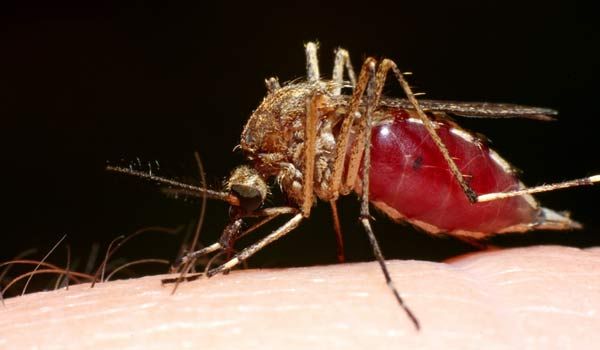West Nile Outbreak Reaches 1,100 Cases in US

The United States is experiencing one of the biggest outbreaks of West Nile virus in history, according to the federal Centers for Disease Control and Prevention.
As of Tuesday, 1,118 cases of the mosquito-borne disease had been reported. That's the highest number ever reported at this point in the year since the disease was first detected in the U.S. in 1999. If cases continue to grow at this pace, the West Nile outbreak could be the largest ever in the United States, said Dr. Lyle Petersen, director of the CDC's Division of Vector-Borne Infectious Diseases.
So far, 41 people have died from West Nile infections.
About 630 people have developed the rare neuroinvasive form of the disease, which affects the nervous system. The other cases involved what doctors call West Nile fever, a condition that can cause fever, headache, body aches, nausea, vomiting.
Texas, the state hit hardest by the outbreak, has reported 537 cases of West Nile, close to 300 of which have been the neuroinvasive form. In some parts of the state, officials have begun aerial pesticide spraying to curb the spread of the disease.
Most people infected with the West Nile virus show no symptoms; from the number of neuroinvasive cases that have occurred, it can be estimated that more than 94,000 people in the United States have been infected with West Nile this year. It's likely that about 98 percent of cases of West Nile fever are not reported, the CDC says.
These unreported cases still take a toll on the nation's health and economy, as people who may not know that West Nile is the cause of their illness take time off from work or use health care resources, said William Schaffner, chairman of the department of preventive medicine at Vanderbilt University.
Sign up for the Live Science daily newsletter now
Get the world’s most fascinating discoveries delivered straight to your inbox.
"The problem is even larger… than the already notably larger problem of neuroinvasive disease,"Schaffner said. The impact of unreported cases is a factor in the decision to call the current West Nile outbreak an emergency, as Dallas did, Schaffner said.
The reason for the large outbreak this year is not clear, but it could be related to this season's especially hot summer. Hot weather seems to increase the virus' transmissibility, Petersen said.
Pass it on: More than 1,100 cases of West Nile virus have occurred in the United States this year so far.
Follow Rachael Rettner on Twitter @RachaelRettner, orMyHealthNewsDaily @MyHealth_MHND. We're also on Facebook & Google+.

Rachael is a Live Science contributor, and was a former channel editor and senior writer for Live Science between 2010 and 2022. She has a master's degree in journalism from New York University's Science, Health and Environmental Reporting Program. She also holds a B.S. in molecular biology and an M.S. in biology from the University of California, San Diego. Her work has appeared in Scienceline, The Washington Post and Scientific American.












